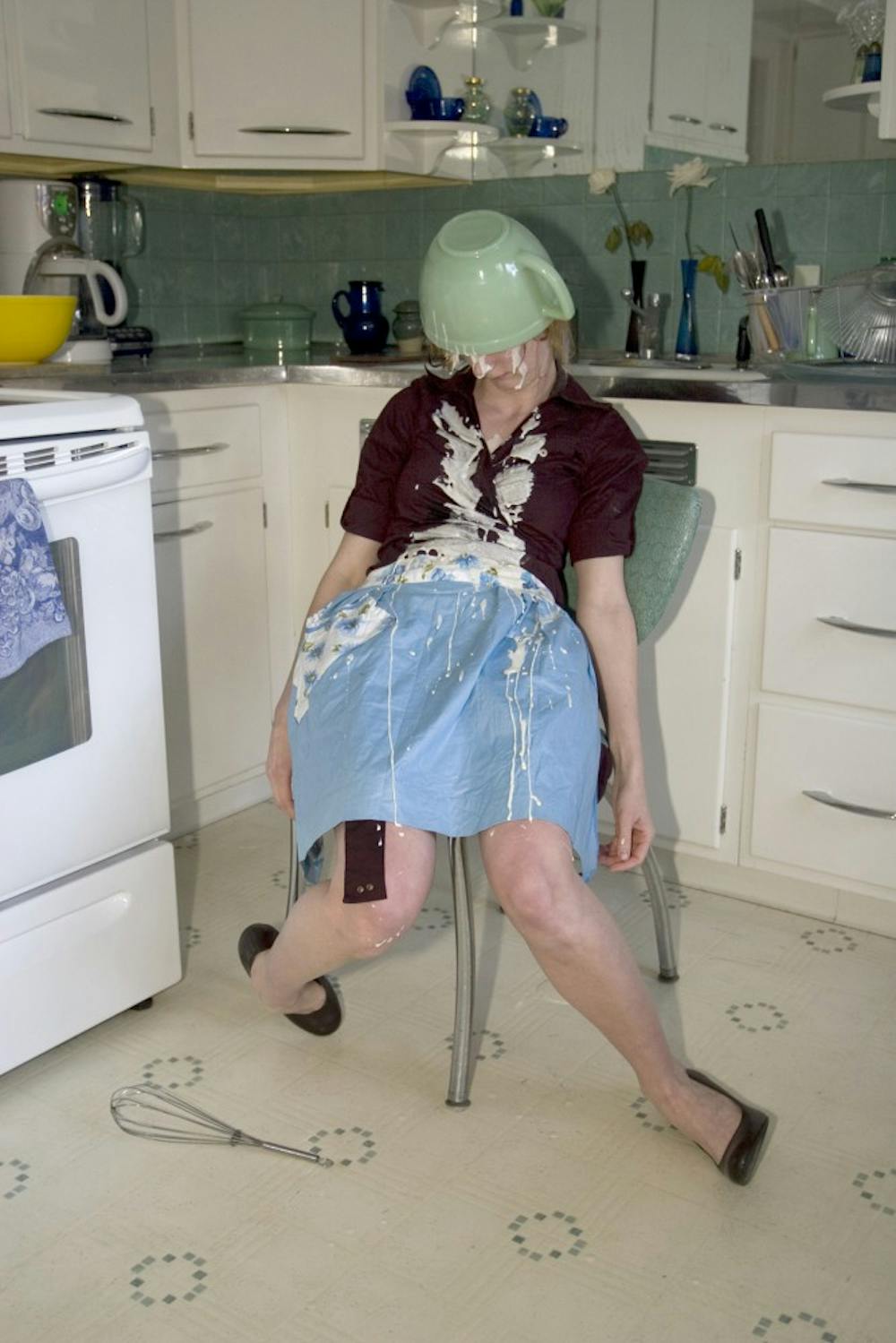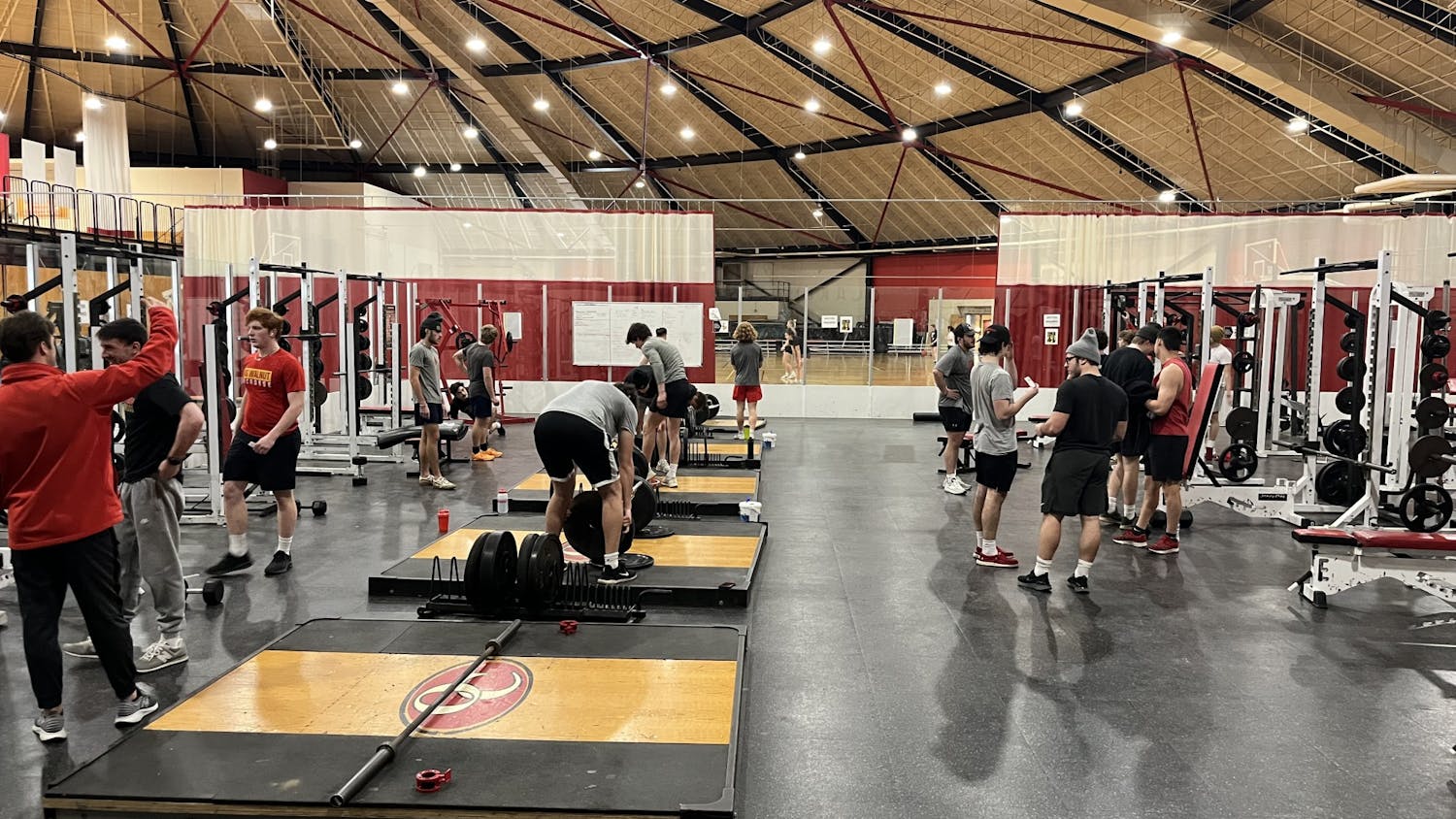Creative talent is something that cannot be eliminated with the limits of a work schedule. It is a testing balance between who you are and where you came from. It is individual drive and potential to create something unique and great. Otterbein art professor Amanda Kline has shown this feat to be not only manageable, but something to excel at. Her creative talent is shown through her staged photographs and performative videos.
She has examined and researched human evolution and anthropology, subjects that have always been an interest to her. Kline has also examined exhibits in natural history museums as inspiration for a lot of her work in these avenues.
“The taxidermy deer, bear, fish and fowl that hang on the walls of my families’ homes were like the animals in displays in the museums,” Kline said. “I thought a lot about the way that nature is presented in museums and homes and how that is illustrative of our larger relationship with nature, and of my own personal place within that relationship.”
Kline’s staged photographs consider the peculiar relationships humans acquire with nature by constructing scenes and spaces that highlight artificial objects and how objects exist in nature. Some of these objects include items such as faux plants or wood grain laminate, as well as those she finds on her walks through the woods.
“Nature is both sublime and terrifying,” Kline said. “There seems to be this primal
urge to be at one with nature, and it’s a beautiful, spiritual place for many people.
Yet, food and technology are separating humans from it more and more.”
Kline wants to share her vision of how nature and humans coincide with each
other through solo shows and galleries regionally, nationally and hopefully someday Internationally.
The reactions from viewers so far have been positive. Kline has seen the audience receive the humor she has aimed to show through her pieces. Much of her work depicts humorous events that challenge social constructs as well as the coordination between organic and developed objects.
Art is not only an extracurricular for Kline, but it influences her teaching style and
how she works with students. Her passion for feminist theory and identity politics
comes to play when working with students on these issues. However, she also exposes students to a variety of theories, histories and techniques in order to help them find their own passions.
When advising aspiring artists and students about their work Kline says, “Keep making art and don’t get discouraged if something doesn’t turn out how you want it to right away.”
She believes roadblocks are an essential part of the art process and it is important to remember that those judging your work have their own opinions and that is OK. Kline also shared the importance of paying attention to the world and art around you and keeping an open mind.
“It’s OK to not like everything, but ask ‘what is the role and function of art in everyday life?’” Kline said.
More recently, Kline began working on pieces that feature old family photographs, self portraits, landscapes and materials from the trailer she grew up in. This autobiographical work examines the tension between her past and present.
“I come from a lowbrow type of culture, a working-class family of hunters, and was born and raised in a trailer set deep in the forest in Pennsylvania,” Kline said. “Now I exist in a world that is totally different; art, academia, white-collar work, the city.”
Kline’s collages have created a space to mesh these two worlds and allow her to
contemplate her identity and the confusing feelings she experiences in returning to Pennsylvania. The toughest and strongest part of these more recent pieces is how personal the work is. However, since they are so personal, Kline describes the challenges of making people care about the pieces.
”Something you need to do as an artist is make people care about it [the artwork],” Kline said.
This is a constant process for all artists, but it allows Kline to show her passion and vulnerability through her artwork. It is a process of deciding your future and examining your past.
Art is something that allows for experimentation, a realization of identity
and provides an avenue for creativity. Every piece of artwork has a purpose, a meaning and a story behind why it was created. It is important to explore these avenues of artwork in order to better








